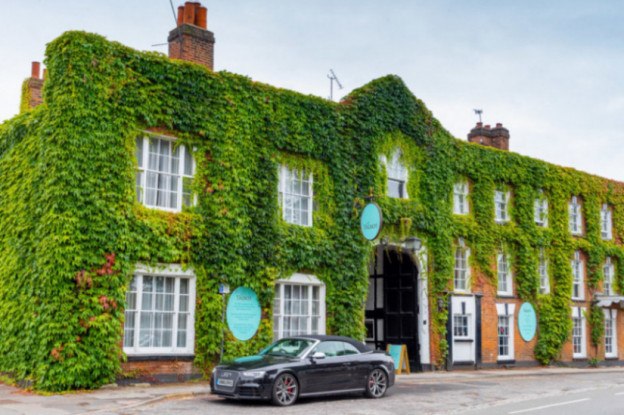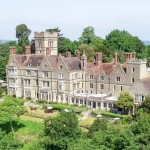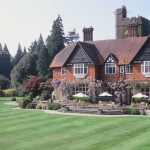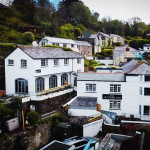Michael Edwards visits the Talbot Inn and revisits the golden age of coaching inns.
When the Talbot Inn was built in 1453 most people still believed that the Earth was flat. The first coaches to pull through the tall arched gateway, that still exists, would have carried nautical men heading for Portsmouth, sailing for the tail-end of the Hundred Years War in France.
Ripley, around 50 miles from the sea, is rather more nautical than similar quaint Surrey villages. Its pubs include The Ship Inn, The Jolly Sailor, and The Anchor. Not what you would expect on the A3, a mile beyond the M25, in land-locked Surrey.
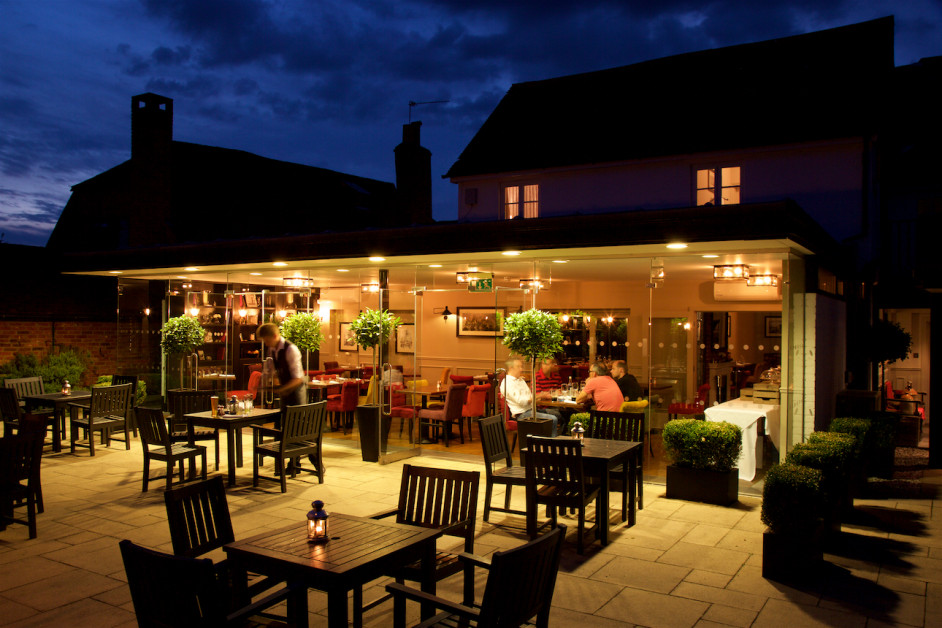
Continuing the maritime theme, the Talbot Inn’s walls are hung with scenes of battling sailing ships and portraits of Lord Horatio Nelson and Lady Emma Hamilton. A bronze plaque in Emma’s room, now a comfortable spot for afternoon tea or drinks, shows where the lovers sat. They may have thought it a discrete spot but society was soon outraged by the romance. Emma was married to Britain’s ambassador to the Kingdom of Naples and Nelson was married too.
Climbing the creaking stairs to one of the four poster rooms in the main inn, many guests must wonder if they are following in the couple’s footsteps. Ultimately the couple behaved as if they were married and had a daughter.
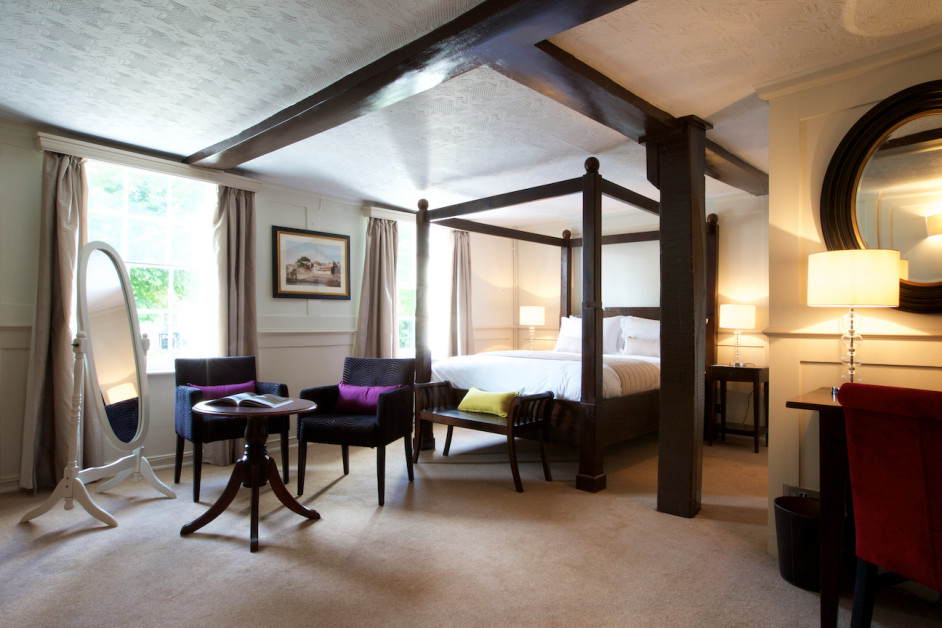
Beamed four poster rooms capture the spirit of bygone centuries with their undulating floors, dark wood furniture, and prints of grand Regency architecture. An en-suite bathroom, coffee maker, and double-glazing bring welcome contemporary touches.
Long ago a daisy wheel, which still remains, was carved into the stair banister to ward off demons and bad spirits. None of that good luck rubbed off on Nelson who died at the Battle of Trafalgar nor the shamed Emma who died in poverty.
Through the ages, stagecoach travel on rough and flinty roads was precarious, particularly when ruthless highwaymen preyed on wealthy travellers. In fact, many travellers made their wills before taking a stagecoach.
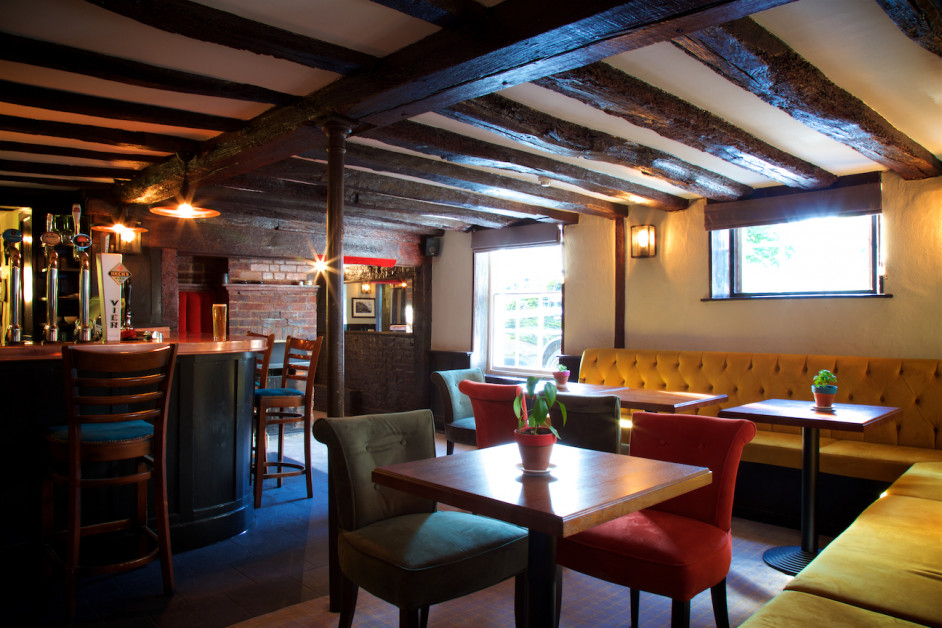
There would have been a sense of relief for travellers arriving at The Talbot Inn, another stage of 10 or 15 miles of their journey complete. Whilst fresh horses were coupled to the stagecoach there would have been an opportunity for a pint of ale or two and a hearty meal. Centuries on, pints are still pulled under the low beams of that bar.
Today’s restaurant is probably more stylish than that of past centuries. Closest to the Talbot Inn’s ivy-draped facade the restaurant is at its most traditional with exposed brick and a copper ceiling. Guests sat at light wooden tables on their aubergine, mustard, sage, or russet chairs are often tempted to pull down a volume of Dickens from the bookshelves. As the dual-aspect restaurant nears the sheltered garden, a glass wall brings a more contemporary feel to the decor, looking out on a sheltered garden popular for al fresco drinks and dining. Locals regularly drop by for coffee and the chef’s cake of the week.
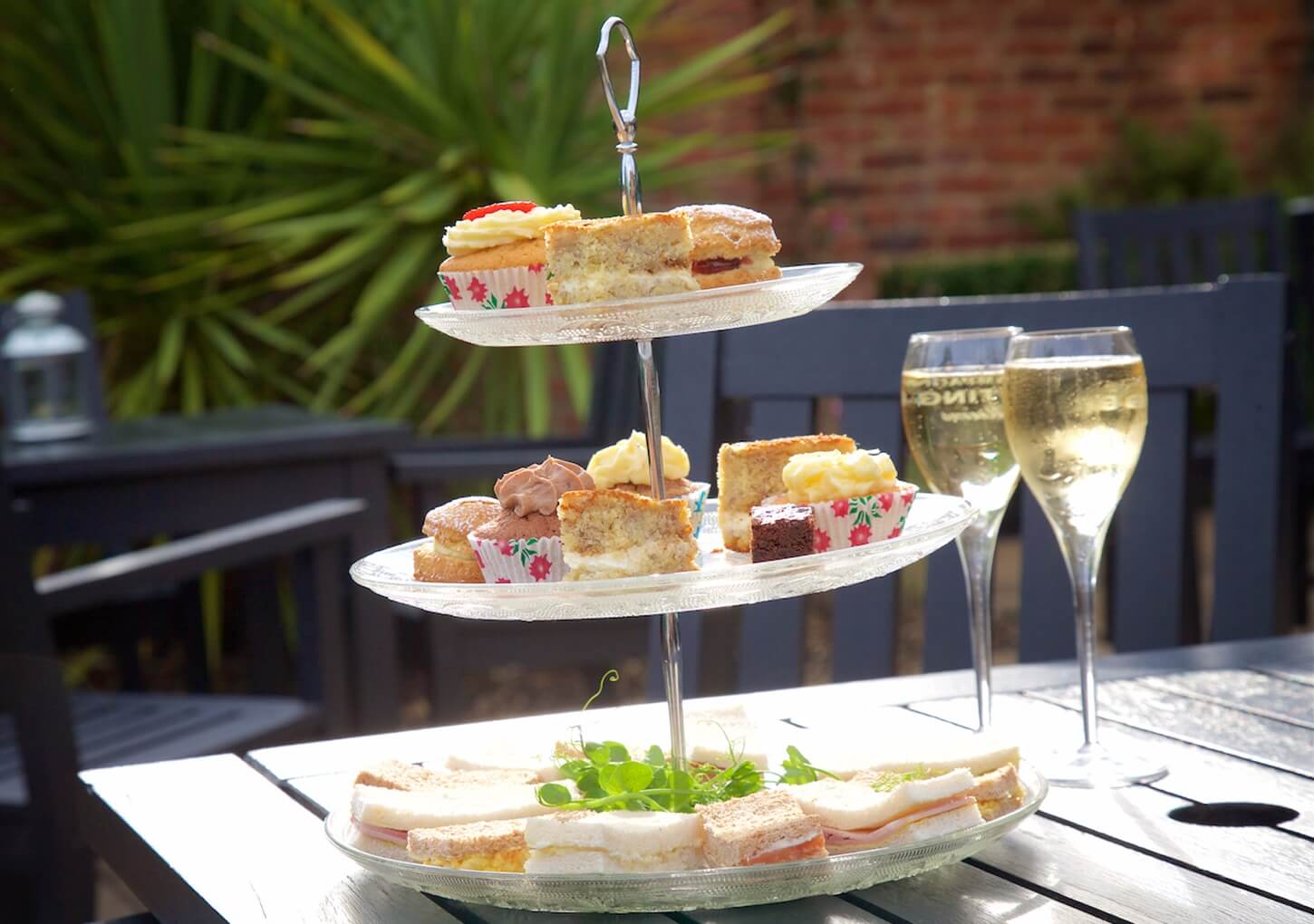
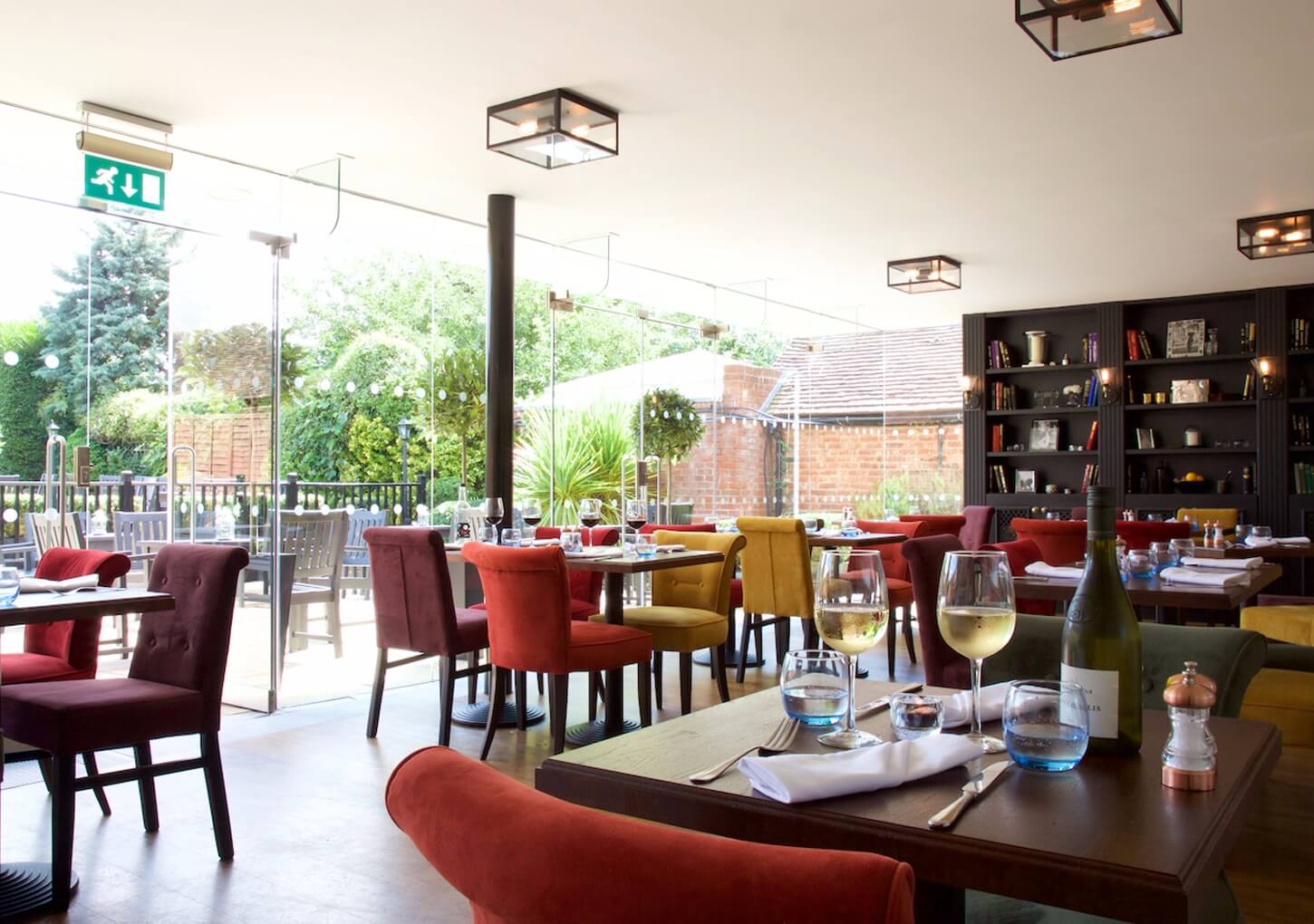
Over the centuries the menu has moved on from hearty coaching classics. A selection of small plates such as duck pate, ham-hock fritters, and shichimi squid encourage diners to think tapas style. Especially when there is a range of salads – Caesar, Niçoise, pear, and Stilton – which can either be ordered as starter or mains size. Guests opting for a traditional main meal have a classics selection that includes chicken supreme, fillet of beef, grilled sea bass, maple-cooked carrots, and a vegan burger.
It is a restaurant, sliding from coaching inn chic to modern, that epitomises The Talbot Inn’s approach. Celebrating and preserving the past whenever possible but also willing to innovate and modernise. Guests can take their choice of the traditional Regency-style four-poster rooms in the old inn or opt for more recently built rooms on the grounds.
Tell Me More About The Talbot Inn
The Talbot Inn, High Street, Ripley, Woking, Surrey GU23 6BB
T: 0884 815 9833rom £
Four poster double rooms, with breakfast, begin from £185 per night.

